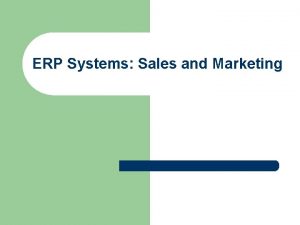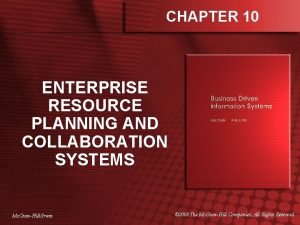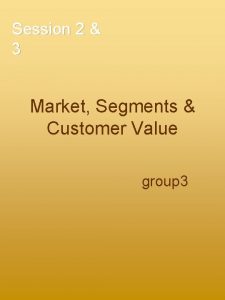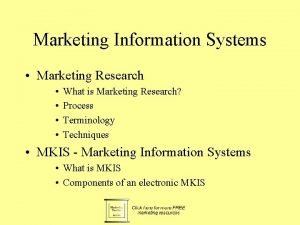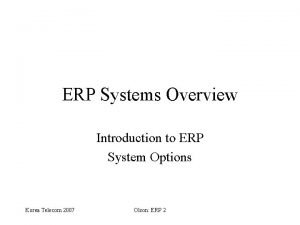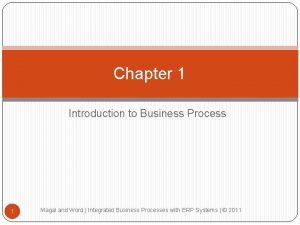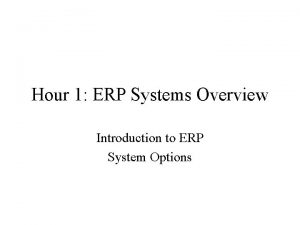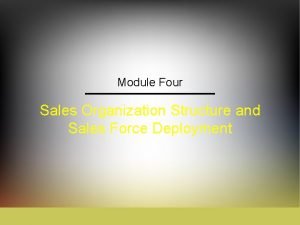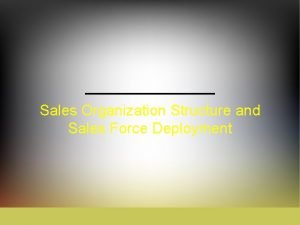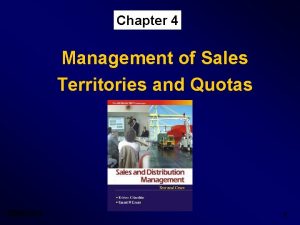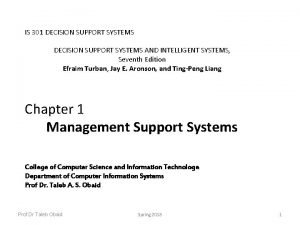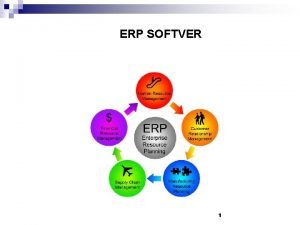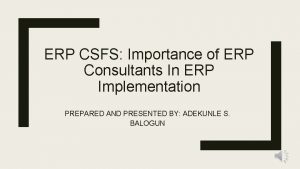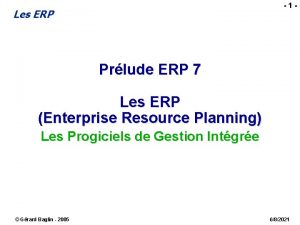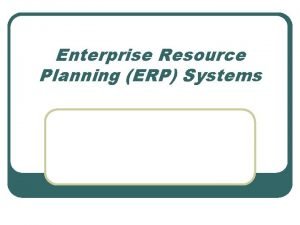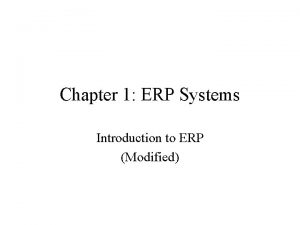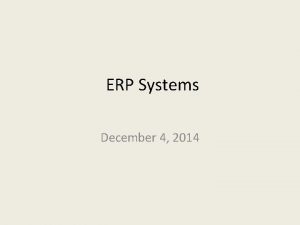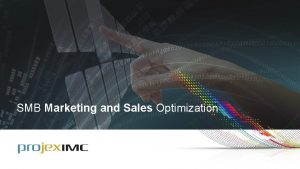ERP Systems Sales and Marketing Sales and Marketing
















- Slides: 16

ERP Systems: Sales and Marketing



Sales and Marketing Modules ERP System(1) l The different between Sales and Marketing modules within an Enterprise Resource Planning (ERP) system and traditional sales and marketing software is that ERP system provide integration marketing support system, including contact files, order entry files, and sales history files.

Sales and Marketing Modules ERP System(2) l ERP system provide Customer Relationship Management (CRM) software, which provides information to salespeople about the previous experiences of customers, including purchases, product preferences, and payment history.



CRM Software(1) l l Roots in sales force automation software To provide representation with sales activity management – – – Sales and territory management Contact management Lead management Configuration support Knowledge management

CRM Software(2) l Sale Activity Management – – Generating leads Contacting prospects Handling order placement Assuring order follow-up

CRM Software(3) l Sales and Territory Management – l Helps sales managers study the pipeline, monitor salespeople’s activities, and optimize teams. Contact Management – Helps sales representatives organize their contact data in databases.

CRM Software(4) l Lead Management – – l Enables sales representatives to monitor leads. To generate next steps. To refine selling efforts by using on-line support. To track prospect attributes, such as product interests, budget amounts and likely competitors. Configuration Management – Provides product-specific configuration support to companies.

CRM Software(5) l Knowledge Management – – Offers access to information resources. Include the following: corporate policy handbooks, sales presentation slides, company phone lists, proposal templates, industry and competitor data, press releases, and transcripts of sales meetings.

CRM Software(6) l l l Without an underlying Sales and Marketing ERP module, the CRM system could not acquire needed operational-level data on sales, orders, and sales order history to support CRM functions. CRM data are accessible via a data warehouse and are separate from the operational databases supported by the ERP system. A data warehouse is a repository of integrated data, which enables sales representatives to make queries and generate reports on customer-specific trends.



 Marketing module in erp
Marketing module in erp Scm, crm, and erp are all extended erp components.
Scm, crm, and erp are all extended erp components. Finer segmentation
Finer segmentation Marketing information systems and marketing research
Marketing information systems and marketing research Marketing information systems and marketing research
Marketing information systems and marketing research Marketing information systems and marketing research
Marketing information systems and marketing research Marketing information system kotler
Marketing information system kotler Marketing information systems and marketing research
Marketing information systems and marketing research Erp 2 systems
Erp 2 systems Introduction of business process
Introduction of business process Introduction to erp systems
Introduction to erp systems Sales department structure
Sales department structure Discuss the nuances of sales letters.
Discuss the nuances of sales letters. Ales force structure
Ales force structure Clover leaf routing plan
Clover leaf routing plan Sales force composite
Sales force composite Decision support systems and intelligent systems
Decision support systems and intelligent systems
